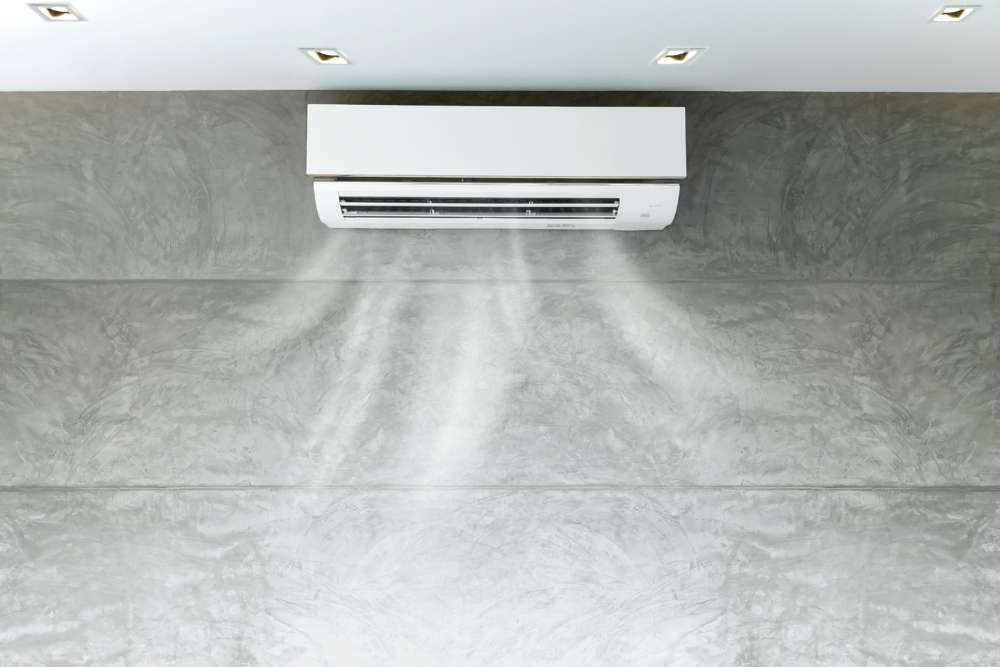New ductless air conditioners are ideal for cooling
Ductless air conditioners have revolutionized the way we think about home cooling systems. These innovative devices offer a flexible, efficient, and cost-effective solution for maintaining comfortable temperatures in various living spaces. As more homeowners seek alternatives to traditional central air systems, ductless air conditioners are gaining popularity for their ease of installation and energy-saving capabilities.

What are ductless air conditioners and how do they work?
Ductless air conditioners, also known as mini-split systems, consist of two main components: an outdoor compressor unit and one or more indoor air-handling units. Unlike traditional central air systems, ductless ACs don’t require extensive ductwork throughout the home. Instead, they use a small conduit to connect the outdoor and indoor units, which houses the power cable, refrigerant tubing, and condensate drain.
The indoor unit blows warm air from the room over cold evaporator coils, cooling it before circulating it back into the space. Meanwhile, the outdoor unit releases the heat extracted from indoors. This simple yet effective process allows for precise temperature control in individual rooms or zones.
What are the benefits of choosing a ductless air conditioner?
Ductless air conditioners offer several advantages over traditional cooling systems:
-
Energy efficiency: Without ductwork, these systems avoid energy losses associated with air leaks in ducts, potentially reducing energy consumption by 30% or more.
-
Flexibility: Indoor units can be installed in various locations, including walls, ceilings, and floors, allowing for customized cooling solutions in different rooms.
-
Improved air quality: Many ductless ACs come with advanced filtration systems that can remove allergens and pollutants from the air.
-
Quiet operation: Indoor units typically operate at noise levels as low as 19 decibels, making them much quieter than window units or central air systems.
-
Easy installation: With no need for extensive ductwork, installation is usually quicker and less disruptive than traditional HVAC systems.
How much do ductless air conditioners cost to install and operate?
The cost of ductless air conditioners can vary widely depending on factors such as the number of indoor units, the system’s capacity, and installation complexity. On average, homeowners can expect to pay between $3,000 and $8,000 for a single-zone system, including installation. Multi-zone systems that cool multiple rooms can range from $5,000 to $15,000 or more.
While the initial investment may be higher than some traditional cooling options, ductless systems often lead to significant energy savings over time. Operating costs depend on factors like local electricity rates, climate, and usage patterns, but many homeowners report monthly savings of 20-30% on their cooling bills after switching to ductless systems.
| System Type | Average Installation Cost | Estimated Annual Operating Cost |
|---|---|---|
| Single-Zone Ductless AC | $3,000 - $5,000 | $300 - $600 |
| Multi-Zone Ductless AC (3 rooms) | $7,000 - $12,000 | $500 - $900 |
| Central Air Conditioning | $5,000 - $12,000 | $700 - $1,200 |
Prices, rates, or cost estimates mentioned in this article are based on the latest available information but may change over time. Independent research is advised before making financial decisions.
Where can you find ductless air conditioners for sale?
Ductless air conditioners are widely available through various channels:
-
HVAC contractors: Many local heating and cooling professionals offer ductless systems and can provide expert installation services.
-
Home improvement stores: Major retailers like Home Depot and Lowe’s sell ductless ACs and may offer installation services.
-
Online marketplaces: Websites such as Amazon, eComfort, and AJ Madison offer a wide selection of ductless air conditioners for direct purchase.
-
Manufacturer websites: Major brands like Mitsubishi, Daikin, and LG often have dealer locators on their websites to help you find local sellers.
-
Specialty HVAC suppliers: Some companies specialize in ductless systems and may offer competitive pricing and expert advice.
What factors should you consider when choosing a ductless air conditioner?
When selecting a ductless air conditioner, keep these key factors in mind:
-
Cooling capacity: Ensure the system’s BTU rating matches your space requirements.
-
Energy efficiency: Look for ENERGY STAR certified models with high SEER (Seasonal Energy Efficiency Ratio) ratings.
-
Number of zones: Determine how many rooms or areas you need to cool.
-
Climate compatibility: Some models perform better in extreme temperatures or high-humidity environments.
-
Noise levels: Check the decibel ratings for both indoor and outdoor units.
-
Additional features: Consider options like Wi-Fi connectivity, programmable timers, or heat pump functionality for year-round use.
How do ductless air conditioners compare to other cooling options?
Ductless air conditioners offer several advantages over traditional cooling methods:
-
Compared to window units, ductless ACs are more efficient, quieter, and don’t block views or light.
-
Unlike central air systems, ductless units allow for individualized temperature control in different rooms.
-
Ductless systems are often more energy-efficient than both window units and central air, leading to lower operating costs.
-
Installation is typically less invasive and time-consuming than installing a central air system, especially in older homes without existing ductwork.
-
Ductless ACs can be a good alternative to portable air conditioners, offering better performance and aesthetics.
In conclusion, ductless air conditioners provide an excellent cooling solution for many homeowners. Their flexibility, energy efficiency, and ability to provide targeted cooling make them ideal for a wide range of applications, from single-room additions to whole-home comfort. While the initial investment may be higher than some alternatives, the long-term benefits in terms of energy savings and improved comfort often make ductless systems a smart choice for modern homes.




